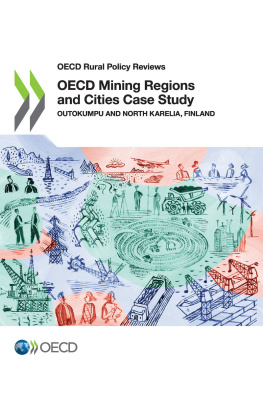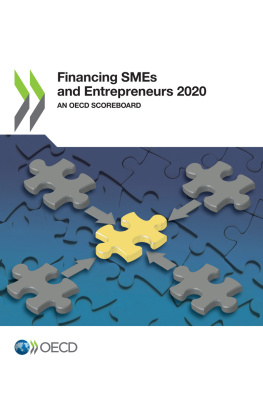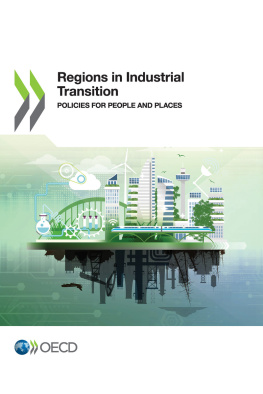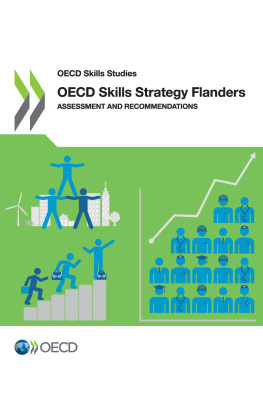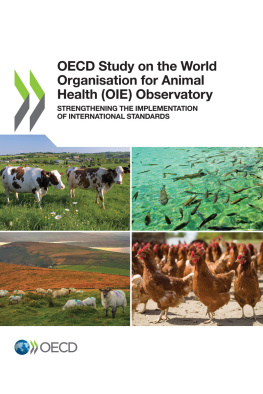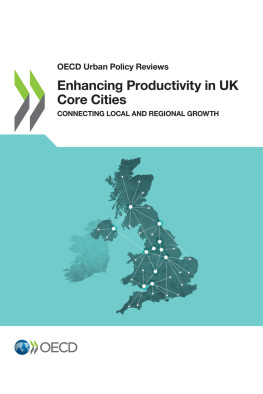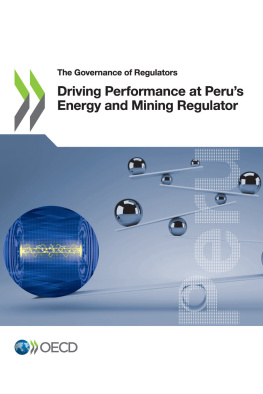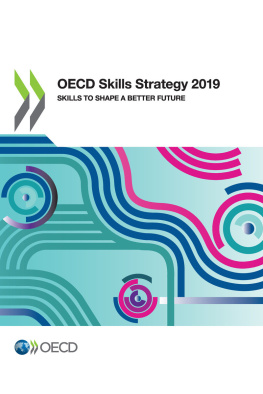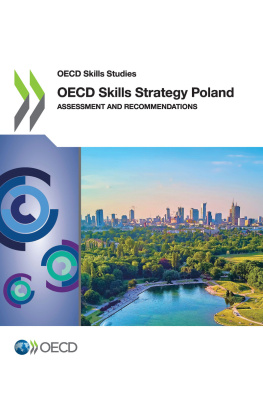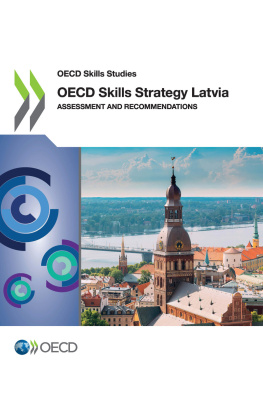OECD - OECD Mining Regions and Cities Case Study
Here you can read online OECD - OECD Mining Regions and Cities Case Study full text of the book (entire story) in english for free. Download pdf and epub, get meaning, cover and reviews about this ebook. year: 2019, publisher: OECD Publishing, genre: Home and family. Description of the work, (preface) as well as reviews are available. Best literature library LitArk.com created for fans of good reading and offers a wide selection of genres:
Romance novel
Science fiction
Adventure
Detective
Science
History
Home and family
Prose
Art
Politics
Computer
Non-fiction
Religion
Business
Children
Humor
Choose a favorite category and find really read worthwhile books. Enjoy immersion in the world of imagination, feel the emotions of the characters or learn something new for yourself, make an fascinating discovery.
- Book:OECD Mining Regions and Cities Case Study
- Author:
- Publisher:OECD Publishing
- Genre:
- Year:2019
- Rating:3 / 5
- Favourites:Add to favourites
- Your mark:
- 60
- 1
- 2
- 3
- 4
- 5
OECD Mining Regions and Cities Case Study: summary, description and annotation
We offer to read an annotation, description, summary or preface (depends on what the author of the book "OECD Mining Regions and Cities Case Study" wrote himself). If you haven't found the necessary information about the book — write in the comments, we will try to find it.
OECD: author's other books
Who wrote OECD Mining Regions and Cities Case Study? Find out the surname, the name of the author of the book and a list of all author's works by series.
OECD Mining Regions and Cities Case Study — read online for free the complete book (whole text) full work
Below is the text of the book, divided by pages. System saving the place of the last page read, allows you to conveniently read the book "OECD Mining Regions and Cities Case Study" online for free, without having to search again every time where you left off. Put a bookmark, and you can go to the page where you finished reading at any time.
Font size:
Interval:
Bookmark:
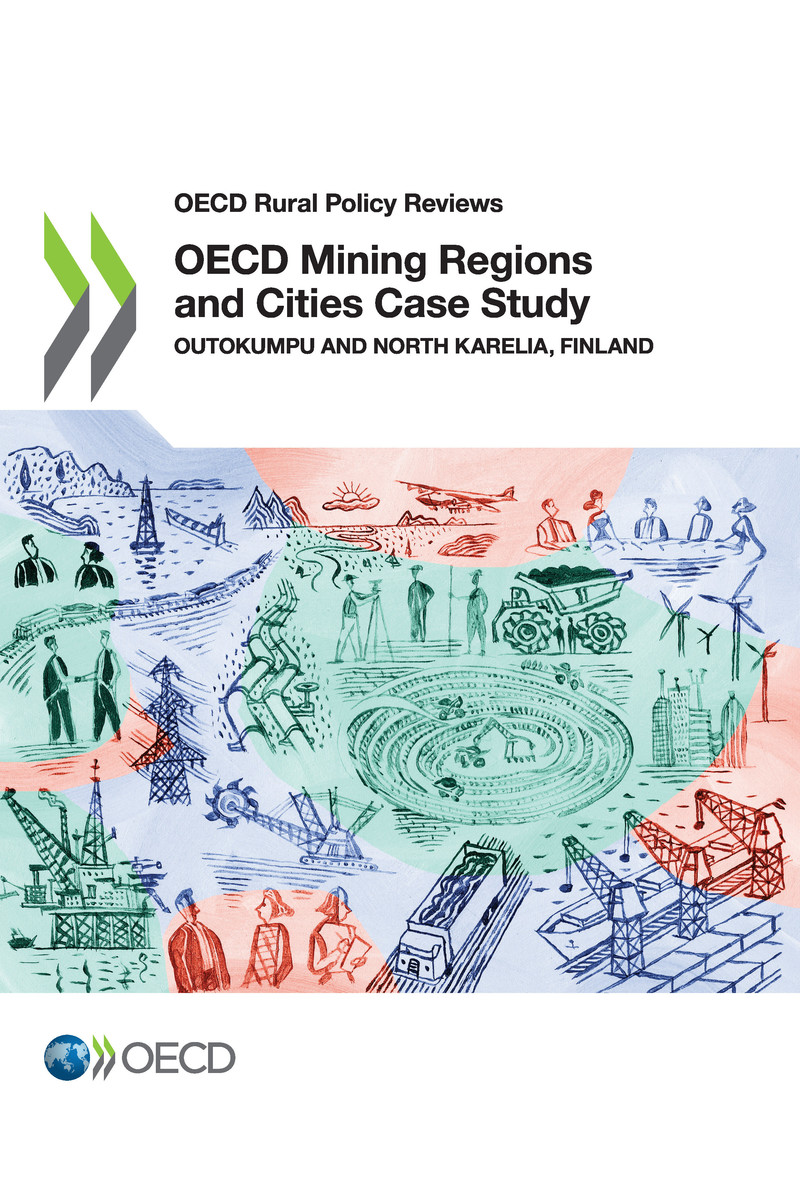
OECD (2019), OECD Mining Regions and Cities Case Study: Outokumpu and North Karelia, Finland , OECD Rural Policy Reviews, OECD Publishing, Paris, https://doi.org/10.1787/cd72611b-en .
The mining sector is relevant for economic development and for well-functioning societies. Raw materials are essential for the production of good and services, for the development of new technologies and the global transition towards a low carbon economy. Ensuring access to a stable supply of raw materials is a priority for many countries and regions. As one of the richest countries in mineral deposits in Europe, Finland can play a key role in the raw materials agenda of the European Union. However, mining policy in Finland is spatially blind, and better integration with regional characteristics and local development strategies are needed.
The subnational dimension is critical to understanding how to deliver better policies for economies that are specialised in mining and extractive activities. Unlike other industries, mining activity is geographically located where the deposits are, which creates a particular interaction with local communities and the environment. Mining specialisation generates a number of opportunities including greater investments and technological innovation, higher-wage jobs and participation in global value chains. Yet such specialisation also brings challenges involving vulnerability to external shocks, inflationary effects and environmental and social impacts. These impacts, both positive and negative, are amplified at regional and local scales.
North Karelia Region, in Finland, can be instrumental to support the national mineral strategy. In the region, the small municipality of Outokumpu was known as the key mining area in Finland for most of the 20 th century. Since the 1980s, Outokumpu has experienced a long-term transition associated with the closure of a major copper mine. The transition from mining to a manufacturing-based economy has been a positive experience, leading to an economy based on subcontracting and exports of metal technologies and mining services. Yet, currently, North Karelia and Outokumpu face development challenges, particularly in terms of generating a more dynamic business environment and labour market.
Outokumpu has a number of competitive advantages benefitting from a strategic location within the local labour market of Joensuu (the largest in North Karelia), a relatively high share of manufacturing activities with outstanding mining know-how and an enabling socio-political environment for mining activities. Yet, the municipality needs to overcome various bottlenecks to mobilise its assets and attain sustainable growth in the long term. They include a declining and ageing population, mismatches in the labour market, a low share of high-skilled workforce and a declining rate of entrepreneurship with stagnation in the establishment of new enterprises.
This study identifies how Outokumpu and North Karelia can build on its competitive advantages and address challenges by mobilising the potential of its mining value chain, diversifying and developing new sources of economic growth and improving governance co-ordination.
This study is part of the OECD Mining Regions and Cities Project that is focused on supporting countries in the implementation of better regional development policies in a mining and extractive context.
This publication was produced in the OECD Centre for Entrepreneurship, SMEs, Regions and Cities (CFE), led by Lamia Kamal-Chaoui, Director, as part of the programme of work of the Regional Development Policy Committee (RDPC).
The report has been conducted in close collaboration with the Municipal Government of Outokumpu, the regional agency Business Joensuu and the North Karelian Regional Council. Special thanks are due to Ilkka Nyknen, Senior Adviser for Business Joensuu, for his support throughout the process. The Secretariat is also grateful to the local review team: Juuso Hieta (Outokumpu Industrial Park) and Raimo Turunen (North Karelian Regional Council).
The OECD team elaborating the report include Chris McDonald, report co-ordinator, with the support of Andres Sanabria, under the supervision of Jose Enrique Garcilazo, Head of the Regional and Rural Policy Unit in the Regional Development and Tourism Division led by Alain Dupeyras. Laura-Sofia Springare drafted Chapter 1 and Andres Sanabria Chapters 2 and 3. The review benefitted from comments by other OECD colleagues, including Enrique Garcilazo (CFE), Ana Moreno-Monroy (CFE), Anna Bolengo (CFE) and Pilar Phillip (CFE), who led the publication process.
Special thanks are due to Jonas Lundstrm (Region Vasterbotten, Sweden) who provided valuable input and comments and accompanied the team in the development of the review. The OECD is also grateful for the involvement and hospitality of Maija Uusisuo (Ministry of Economic Affairs and Employment), Risto Poutiainen (Mayor of North Karelia), Harri Palviainen (CEO, Business Joensuu), Pekka Suomela (Finnish Mining Association), representatives from North Karelia and the Municipal Government of Outokumpu, including Merja Marin and Pivi Lintumki, as well as business and civil society representatives met in the context of this review.
Font size:
Interval:
Bookmark:
Similar books «OECD Mining Regions and Cities Case Study»
Look at similar books to OECD Mining Regions and Cities Case Study. We have selected literature similar in name and meaning in the hope of providing readers with more options to find new, interesting, not yet read works.
Discussion, reviews of the book OECD Mining Regions and Cities Case Study and just readers' own opinions. Leave your comments, write what you think about the work, its meaning or the main characters. Specify what exactly you liked and what you didn't like, and why you think so.

